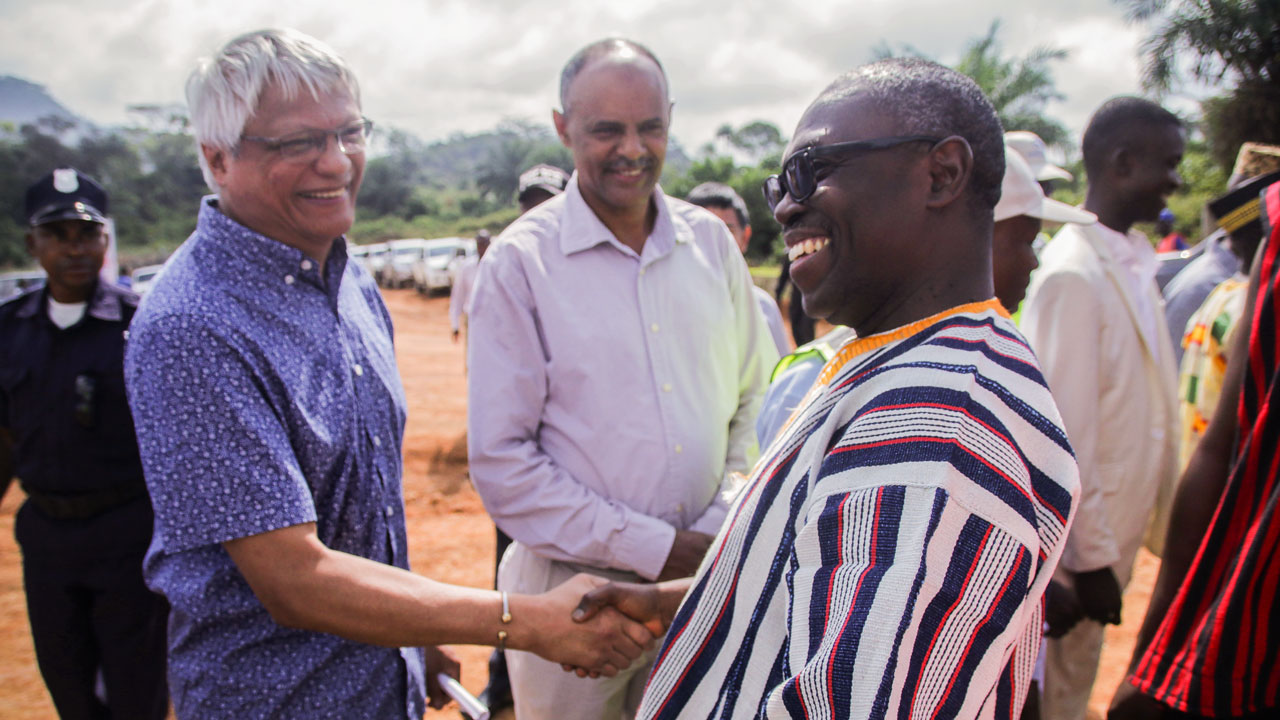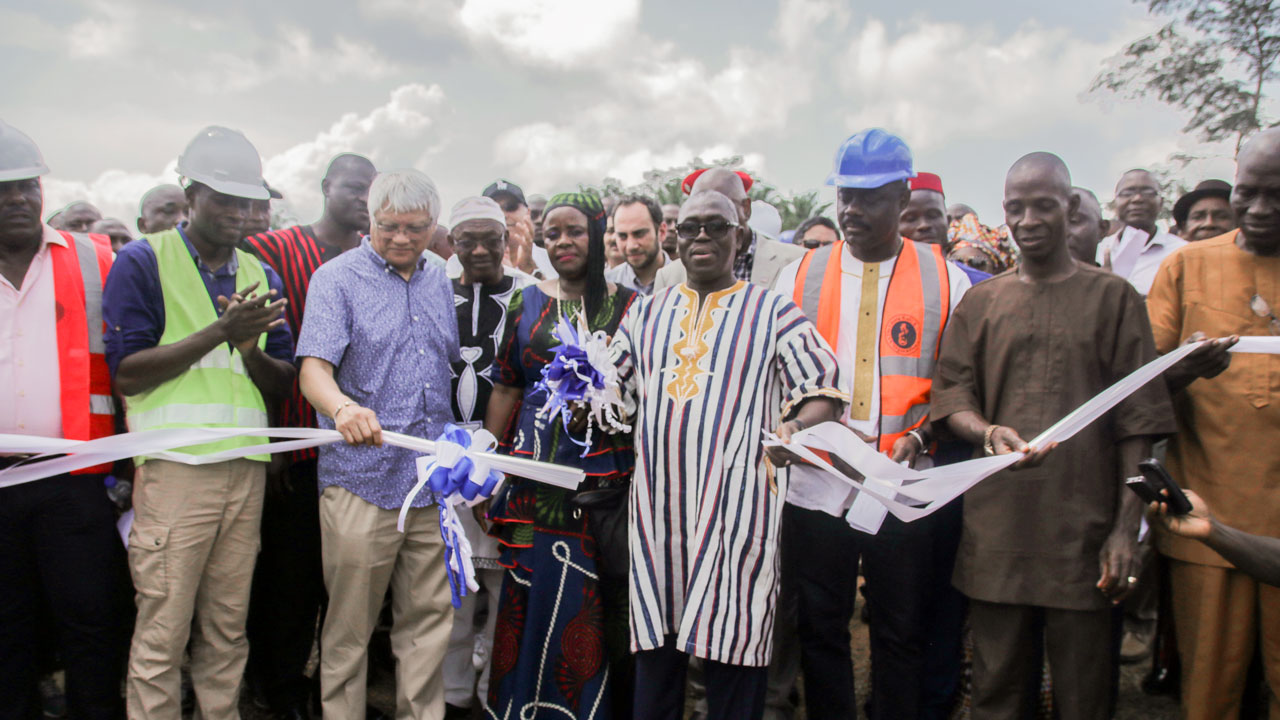
On November 28, 2018, community officials, the Liberian government, and officials from the U.S. Agency for International Development (USAID) celebrated the dedication of the Sanniquellie City water treatment plant.
As part of the USAID Liberia Municipal Water Project (LMWP), Tetra Tech designed a solar-powered water treatment plant and public distribution system, placing kiosks within 500 meters of homes to reduce the time families spend collecting water to under 30 minutes. This is one of the largest solar-powered treatment plants in Liberia and West Africa.
The dedication ceremony was a symbolic hand-off from USAID to the Liberia Water and Sewer Company (LWSC), showing the community that the new water system will sustain their need for clean water for years to come and provide them the basic human right they deserve. Tetra Tech will continue to provide operation and maintenance oversight for the next two years to ensure the success of the plant.
This project today turned around 90 percent of our citizens from drinking unsafe water to drinking safe water, so we are grateful.

“The objective of the dedication is to show the local community that the system is for them, that the benefit of the system is for the local economy and to ensure people have access to clean and safe water,” said Safaa Fakorede, LMWP Chief of Party. “It’s critical for them to have interest in the management, for them to pay their bills to maintain the system, to raise awareness within the local community for the public health benefits, and to protect the infrastructure.”
The water treatment plant was transferred to the Liberian water utility, LWSC, through a public-private partnership with a private operator—Pump and Tank Maintenance Company—to achieve cost recovery and self-reliance. This system ringfences most of the revenue within the local water sector to fund further development and new water connections. During the ceremony, Minister Sirleaf said to the residents, “I want you to look at this as your own. You are in charge.”
Tetra Tech involved the community from the first day of work on LMWP. From performing a needs assessment to boosting water consumption and sales, the community led the project development. Tetra Tech also formed local steering committees (LSCs) with 10 community members representing each subculture.
Deddeh Kollie, the LSC Chairperson said, “We made sure the locals from the community were going to benefit from the project. And there’s been a great change because it hasn’t just benefited water, it benefited our skills and increased our incomes. Some built their own houses, some own land, and some are running businesses in the marketplace all because of the project.”
The community will continue to play a dynamic role in the longevity of the project. The LSCs have signed on to monitor and evaluate the private operator’s ability to maintain the facilities. The LSCs provide a third layer of checks and balances between the public-private partnership, safeguarding USAID’s investment, inhibiting further corruption, and ensuring long-term self-reliance. “This process is key for the water sector to reach self-reliance, because it’s targeting sustainability, the hallmark for the project,” said Safaa.